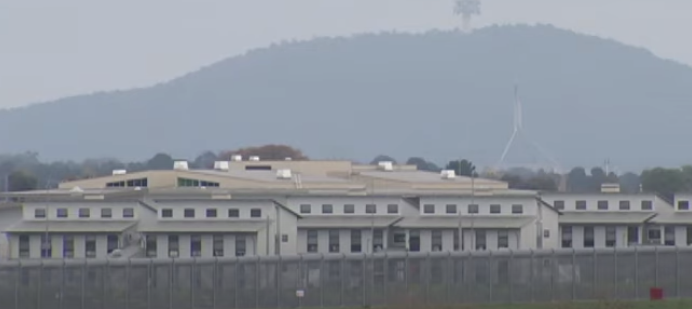Aboriginal woman sues Australian Capital Territory government for allegedly forcibly strip searching her
The 37-year-old sexual assault survivor claims the incident was visible to several male detainees in prison

A 37-year-old indigenous woman has sued the Australian Capital Territory (ACT) government for breaching her human rights when she was on remand in a Canberra prison.
The unnamed Ngunnawal woman, who is also a sexual assault survivor, has claimed in court papers that she was subjected to a number of violations and cruel treatment by police officers at the Alexander Maconochie correctional centre in January this year.
The woman claimed she was forcibly strip searched by the guards and alleged the incident was visible to male detainees in the prison as well.
She had a pacemaker installed and a collapsed lung and also claimed to have borderline personality disorder, according to her statement.
The woman also said she was denied permission to attend her grandmother’s funeral, something that had left her upset. She claimed she was moved to the facility’s Crisis Support Unit “because they fear for my safety and mental health”.
It was here that she claimed a team of police officers had a knife and decided to forcibly strip search her.
She said CCTV camera footage of the incident was viewed live in the jail’s operation room.
Her court documents, that included audio recordings, pointed out the events leading to the strip search, according to an ABC News report. One of the officers had claimed that she had seen her “hands in her crotch area.”
The woman also said one of the officers had a knife with them that would be used to tear off her clothes. One of the officers, in the audio recordings, can be heard saying “Who’s got the knife?”
It was only after the woman complied with the request to be strip searched that the authorities did not use the knife, according to the ABC report.
Julie Tongs, chief executive of the Winnunga Nimmityjah Aboriginal health centre which runs a daily clinic at the facility, told The Guardian newspaper that authorities needed to be held accountable.
“There were so many failures and breaches of the Human Rights Act and the corrections act. And yet, nothing changes. Nothing happens. One of the recommendations was for another body scanning machine. Why didn’t they have body scanning machines already? They should be installed,” Ms Tongs said.
“We’re providing all support we can from Winnunga and she’s got family as well, but people just don’t take seriously enough what’s happening here in the ACT in the prison, and that’s why we need a royal commission,” she added.
The ACT’s Inspector of Correctional Services had released a report soon after the incident was reported and said that while the search was lawful, the officers did not “properly consider” the woman’s human rights.
Neil McAllister, the Inspector of Correctional Services, said at the time of releasing the report that “the decision to proceed with the use of force placed her poorer health at greater risk” and was inconsistent with the Human Rights Act.
He also called the incident “degrading and traumatising” and recommended getting two body scanners so as to avoid strip-searches in the future.
The woman had, earlier in a letter accessed by The Guardian, written a harrowing account of the incident soon after it had come to light.
“Here I ask you to remember that I am a rape victim, so you can only imagine the horror, the screams, the degrading feeling, the absolute fear and shame I was experiencing... as well as the grief and despair, disappointment of not being able to attend my grandmother’s funeral,” she wrote.
Join our commenting forum
Join thought-provoking conversations, follow other Independent readers and see their replies
Comments
Bookmark popover
Removed from bookmarks